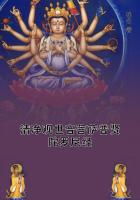Sometimes a man knows a place determinate,within the compass whereof he is to seek;and then his thoughts run over all the parts thereof in the same manner as one would sweep a room to find a jewel;or as a spaniel ranges the field till he find a scent;or as a man should run over the alphabet to start a rhyme.
Sometimes a man desires to know the event of an action;and then he thinketh of some like action past,and the events thereof one after another,supposing like events will follow like actions.As he that foresees what will become of a criminal re-cons what he has seen follow on the like crime before,having this order of thoughts;the crime,the officer,the prison,the judge,and the gallows.Which kind of thoughts is called foresight,and prudence,or providence,and sometimes wisdom;though such conjecture,through the difficulty of observing all circumstances,be very fallacious.But this is certain:by how much one man has more experience of things past than another;by so much also he is more prudent,and his expectations the seldomer fail him.The present only has a being in nature;things past have a being in the memory only;but things to come have no being at all,the future being but a fiction of the mind,applying the sequels of actions past to the actions that are present;which with most certainty is done by him that has most experience,but not with certainty enough.And though it be called prudence when the event answereth our expectation;yet in its own nature it is but presumption.For the foresight of things to come,which is providence,belongs only to him by whose will they are to come.From him only,and supernaturally,proceeds prophecy.The best prophet naturally is the best guesser;and the best guesser,he that is most versed and studied in the matters he guesses at,for he hath most signs to guess by.
A sign is the event antecedent of the consequent;and contrarily,the consequent of the antecedent,when the like consequences have been observed before:and the oftener they have been observed,the less uncertain is the sign.And therefore he that has most experience in any kind of business has most signs whereby to guess at the future time,and consequently is the most prudent:and so much more prudent than he that is new in that kind of business,as not to be equalled by any advantage of natural and extemporary wit,though perhaps many young men think the contrary.
Nevertheless,it is not prudence that distinguisheth man from beast.
There be beasts that at a year old observe more and pursue that which is for their good more prudently than a child can do at ten.
As prudence is a presumption of the future,contracted from the experience of time past:so there is a presumption of things past taken from other things,not future,but past also.For he that hath seen by what courses and degrees a flourishing state hath first come into civil war,and then to ruin;upon the sight of the ruins of any other state will guess the like war and the like courses have been there also.But this conjecture has the same uncertainty almost with the conjecture of the future,both being grounded only upon experience.
There is no other act of man's mind,that I can remember,naturally planted in him,so as to need no other thing to the exercise of it but to be born a man,and live with the use of his five senses.Those other faculties,of which I shall speak by and by,and which seem proper to man only,are acquired and increased by study and industry,and of most men learned by instruction and discipline,and proceed all from the invention of words and speech.For besides sense,and thoughts,and the train of thoughts,the mind of man has no other motion;though by the help of speech,and method,the same faculties may be improved to such a height as to distinguish men from all other living creatures.
Whatsoever we imagine is finite.Therefore there is no idea or conception of anything we call infinite.No man can have in his mind an image of infinite magnitude;nor conceive infinite swiftness,infinite time,or infinite force,or infinite power.When we say anything is infinite,we signify only that we are not able to conceive the ends and bounds of the thing named,having no conception of the thing,but of our own inability.And therefore the name of God is used,not to make us conceive Him (for He is incomprehensible,and His greatness and power are unconceivable),but that we may honour Him.
Also because whatsoever,as I said before,we conceive has been perceived first by sense,either all at once,or by parts,a man can have no thought representing anything not subject to sense.No man therefore can conceive anything,but he must conceive it in some place;and endued with some determinate magnitude;and which may be divided into parts;nor that anything is all in this place,and all in another place at the same time;nor that two or more things can be in one and the same place at once:for none of these things ever have or can be incident to sense,but are absurd speeches,taken upon credit,without any signification at all,from deceived philosophers and deceived,or deceiving,Schoolmen.















